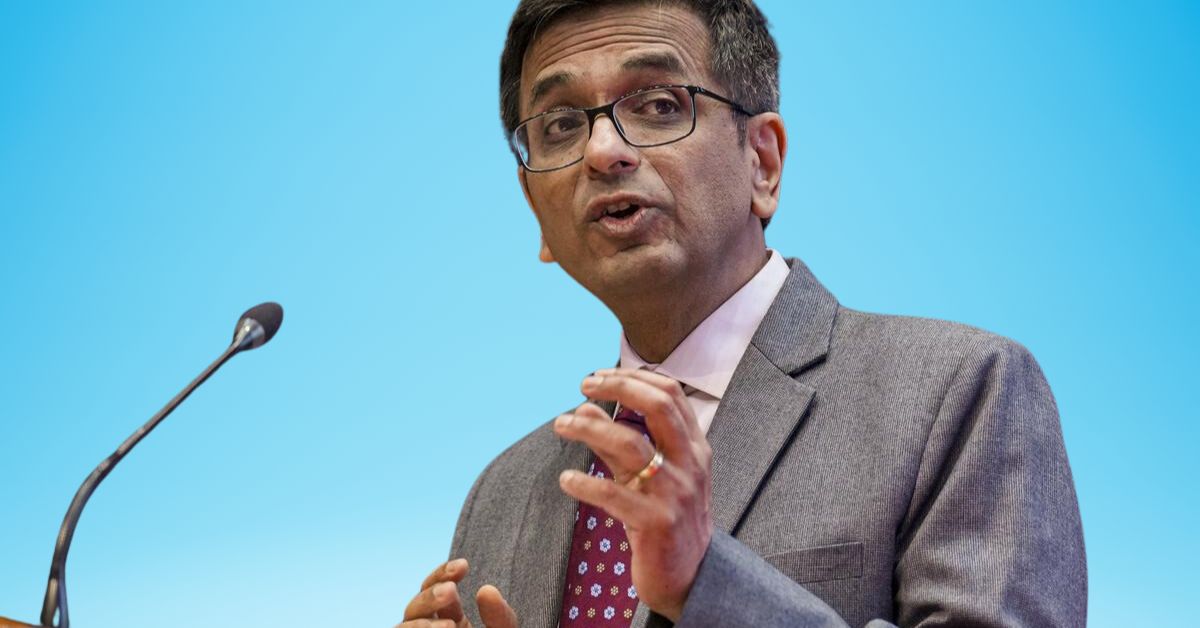Panaji: Chief Justice of India (CJI) D Y Chandrachud emphasized the need for respectful and inclusive language in courtrooms, particularly with respect to women, during his address at the inauguration of the North Goa District Courts Complex on Saturday, October 19. He highlighted the impact of derogatory language on perpetuating stereotypes, which disproportionately affect women and marginalized communities.
Referring to complaints from women judicial officers about inappropriate language used by members of the administrative establishment, CJI Chandrachud made it clear that such language has no place in courts. “We must actively work to dismantle all barriers to have truly democratic access to justice,” he remarked, stressing the importance of ensuring that language in court is respectful, precise, and considerate.
The CJI further explained how dismissive or insensitive language in legal settings can reinforce harmful stereotypes based on gender, caste, or socioeconomic status. He noted that the Supreme Court has prepared a handbook on gender, aimed at addressing and making people aware of gender stereotypes used in court discourse.
Inclusivity and Legal Language CJI Chandrachud called for a re-examination of the legal lexicon, ensuring it reflects inclusivity, respect, and empowerment. He pointed out that judicial officers, especially those at the district level, must be mindful of uplifting legal discourse, as litigants enter courtrooms with trust and vulnerability, seeking justice.
In line with promoting inclusivity, the CJI emphasized the importance of making judgments and court orders accessible in regional languages. He mentioned that Supreme Court orders are being translated into Konkani, with hopes that the process will be expedited for the Bombay High Court as well.
Redefining the Lady of Justice Addressing the redesign of the statue of the Lady of Justice, the CJI noted that the law is not blind but sees everyone equally. Unlike traditional depictions where the Lady of Justice carries a sword and is blindfolded, the statue at the Supreme Court now holds the Constitution of India. This represents the transformative power of the Constitution to dismantle social hierarchies and inequalities.
“The law is not blind,” CJI Chandrachud stated, “It views everyone equally and is aware of social realities.” He stressed that the principle of equality is rooted in the recognition of historical disadvantages and privileges faced by certain communities.
The Chief Justice concluded by emphasizing the importance of a judicial system that remains acutely aware of societal challenges and realities, ensuring that every individual who comes before the court is treated with dignity and fairness.






